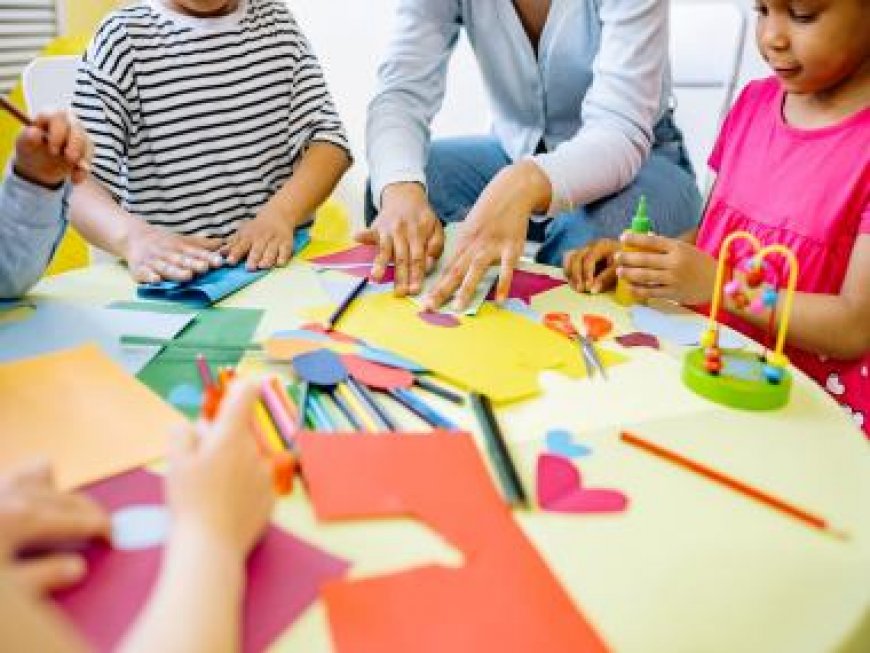Unlocking Potential: The Importance of Fostering Creativity in Children
Unlocking Potential: The Importance of Fostering Creativity in Children

What's Your Reaction?







Join our subscribers list to get the latest news, updates and special offers directly in your inbox

In a world driven by technology and standardized education, nurturing creativity in children has become more crucial than ever. Creativity is not just about artistic expression; it’s a vital skill that empowers children to think critically, solve problems, and approach challenges with innovative solutions. As parents and caregivers, understanding the significance of letting your child explore and express their creativity from a young age can have lasting positive effects on their development and future success.
1. Cultivating Critical Thinking Skills:
Encouraging creativity in children fosters critical thinking skills, allowing them to approach problems with an open mind and find unique solutions. Creative activities, such as drawing, building, or imaginative play, require children to think outside the box, enhancing their ability to analyze situations and make informed decisions.
2. Building Confidence and Self-Esteem:
Engaging in creative pursuits helps children build confidence and a positive self-image. When a child creates something, whether it’s a piece of art, a story, or a solution to a problem, they experience a sense of accomplishment. This boosts their self-esteem and instills a belief in their capabilities, setting a foundation for a more resilient and confident approach to challenges later in life.
3. Enhancing Communication Skills:
Creative activities often involve expressing ideas, feelings, and stories. Whether through art, storytelling, or pretend play, children develop and refine their communication skills. This ability to express themselves effectively is not only beneficial in personal relationships but is also crucial for success in academic and professional settings later in life.
4. Fostering a Love for Learning:
Creativity makes learning enjoyable and engaging for children. When they are allowed to explore topics in a creative way, such as through hands-on projects, experiments, or artistic expression, it ignites a love for learning. This intrinsic motivation to discover and understand new things can have a profound impact on their academic success and lifelong curiosity.
5. Encouraging Problem-Solving Abilities:
Creative activities often involve overcoming challenges and solving problems. Whether it’s figuring out how to build a structure with blocks or creating a storyline for a play, children develop problem-solving skills through the process of exploration and experimentation. These problem-solving abilities are transferable to various aspects of life and contribute to a child’s overall cognitive development.
6. Nurturing Emotional Intelligence:
Creativity is an outlet for emotional expression. Through artistic endeavors, children can process and express their emotions, fostering emotional intelligence. This ability to understand and manage emotions is essential for building healthy relationships, coping with stress, and navigating the complexities of social interactions.
7. Sparking Innovation and Adaptability:
In a rapidly changing world, the ability to innovate and adapt is crucial. Fostering creativity in children from a young age nurtures an innovative mindset. As they explore different possibilities and experiment with ideas, they develop the flexibility to adapt to new situations and challenges, setting the stage for success in an ever-evolving society.
8. Supporting a Well-Rounded Education:
While academic subjects are undoubtedly important, a well-rounded education includes the development of creative skills. Creativity complements traditional learning by encouraging a holistic approach to education. It ensures that children not only excel in academic subjects but also possess the skills necessary for success in diverse areas of life.
9. Instilling a Lifelong Love for Arts and Culture:
Exposing children to creative activities, whether in the form of visual arts, music, dance, or literature, helps instill a lifelong appreciation for arts and culture. This not only enriches their lives but also contributes to a society that values creativity, diversity, and the beauty of human expression.
10. Connecting Families and Fostering Bonding:
Engaging in creative activities as a family creates opportunities for bonding and connection. Whether it’s a family art project, storytelling sessions, or collaborative play, these shared experiences strengthen family ties and create lasting memories. It also sets the foundation for open communication and support within the family unit.
Fostering creativity in children is an investment in their future success and well-being. By providing opportunities for creative exploration, parents and caregivers contribute to the development of well-rounded individuals who are not only academically proficient but also equipped with the critical thinking, problem-solving, and emotional intelligence skills necessary for navigating the complexities of life. So, let your child’s imagination soar, embrace the messiness of creativity, and watch as they unlock their full potential. After all, the world needs thinkers, innovators, and dreamers to shape a brighter and more imaginative future.







Feb 9, 2023 0 1001
Jun 19, 2023 0 563
Mar 22, 2024 0 347
Feb 17, 2024 0 188
Dec 21, 2023 0 160
May 17, 2023 0 1517
Apr 13, 2023 0 3052
Apr 13, 2023 0 2820
Jul 4, 2022 0 8611
Total Vote: 8
YesThis site uses cookies. By continuing to browse the site you are agreeing to our use of cookies.
